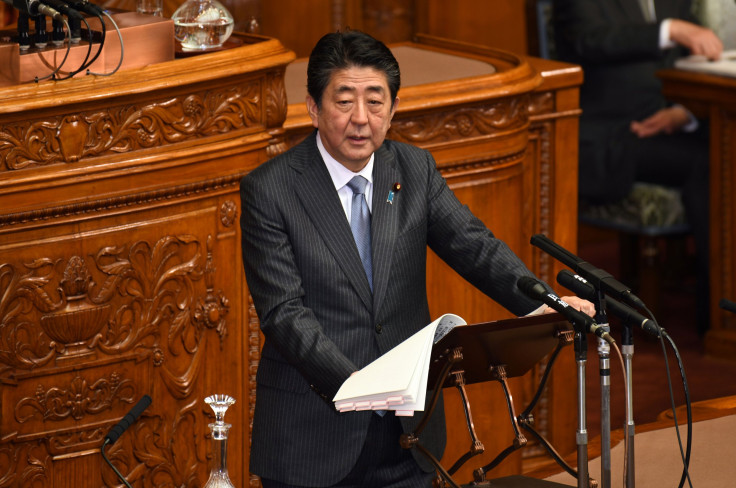Japan News: Will There Be A Sales Tax Hike, Despite Economic Concerns?

As Japan faces the world's highest public debt burden and an aging population, the Japanese government has decided to set a national sales tax hike that will be enacted in October.
The plan has resulted in rumors that Japanese President Shinzo Abe would call a snap election if his government would go forward with the tax hike. Abe on Friday told Japanese Kyodo agency that he would not ask for snap elections to get voter consent for the tax hike.
"I am basically not thinking of voters' consent, but it would depend on the situation so I cannot state with certainty," he said.
The Japanese nationwide sales tax is currently set at 8%, with the tax increase taking it to 10%. The goal of the sales tax hike is not only to alleviate Japan's debt burden but also to support its social security system for its aging population.
One of the main issues with the tax hike is that it could hurt Japanese economic growth. Lower global demand for Japanese exports and the U.S.-China trade war are two issues that are already major points of concern for the Japanese economy.
Economy Minister Toshimitsu Motegi believes Japan should go forward with the tax hike despite these concerns.
"I don’t think things are that bad," he told Reuters. "Manufacturing is affected by the U.S.-China trade dispute. But if you look at the supply side of our economy, manufacturing accounts for only 21 percent."
The Japanese government on Friday downgraded its outlook for the economy with its monthly economic report saying that its "economy is recovering at a moderate pace, while weakness in exports and industrial production continues."
In seven years under Abe, the government has steered the economy in a new direction after a period of economic stagnation from 1992 to 2000, known as "the Lost Decade." Abe's economic policy, also known as Abenomics, has centered around fiscal stimulus, engaging in quantitative easing and liberalizing the Japanese economy.
© Copyright IBTimes 2024. All rights reserved.





















